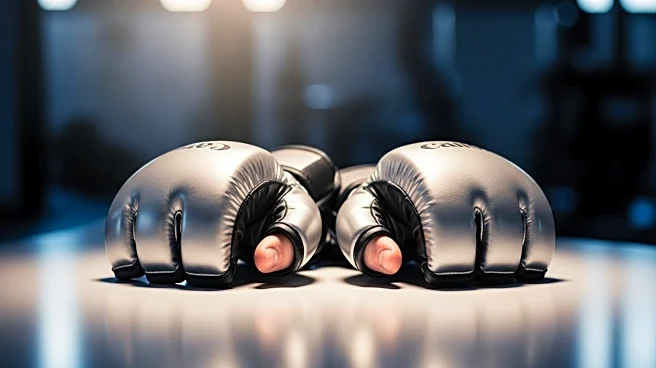What is the story about?
What's Happening?
Jamie Mullarkey, a 31-year-old lightweight fighter in the UFC, has taken a significant break from fighting to focus on his mental and physical health. After a challenging fight in Rio, Mullarkey recognized the need to step back and allow himself time to rest and reset. He has gone 5-6 in his first 11 UFC starts, establishing himself as a formidable competitor in the 155-pound weight class. Mullarkey's decision to pause his career comes after dealing with persistent health issues, including staph infections, which kept him out of the gym for several months. He has since shifted his training to Freestyle MMA under Joe Perez, alongside featherweight champion Alexander Volkanovski.
Why It's Important?
Mullarkey's decision to take a break highlights the often-overlooked importance of mental and physical health in professional sports. His experience underscores the pressures athletes face to continuously perform at high levels, often at the expense of their well-being. By prioritizing his health, Mullarkey sets an example for other athletes who may be struggling with similar issues. This move could influence how sports organizations and trainers approach athlete care, potentially leading to more supportive environments that recognize the need for rest and recovery.
What's Next?
Mullarkey is expected to return to the UFC once he has fully recovered and regained his competitive edge. His training with Freestyle MMA and Alexander Volkanovski suggests he is preparing for a strong comeback. The UFC and fans will be watching closely to see how his time off impacts his performance in future fights. Mullarkey's return could also spark discussions within the UFC about athlete health management and the benefits of taking breaks.
Beyond the Headlines
Mullarkey's break from fighting raises broader questions about the culture of endurance and perseverance in professional sports. It challenges the notion that athletes must constantly push through adversity without taking time to heal. This development may lead to a shift in how athletes view their careers, encouraging them to prioritize long-term health over short-term gains. It also highlights the potential for sports organizations to implement policies that support athlete wellness.















